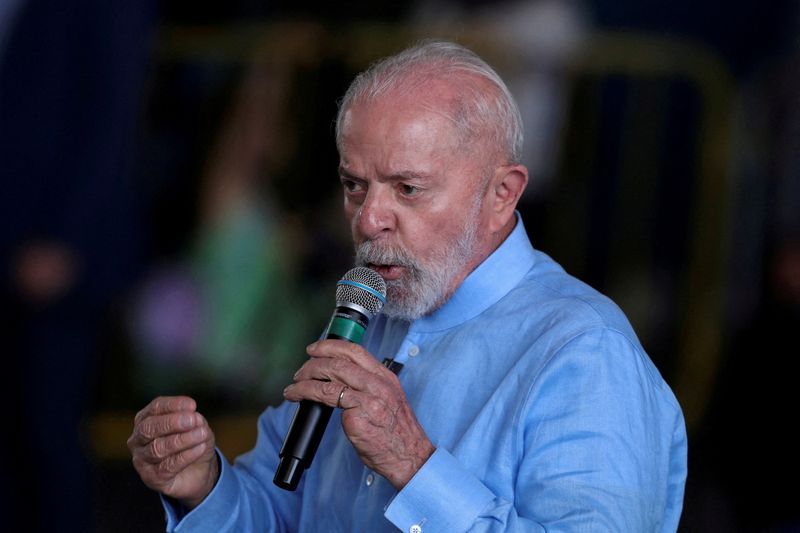BRASILIA (Reuters) – Brazil’s currency has weakened further Monday (NASDAQ:) as President Luiz Inacio Lula da Silva’s government delayed the release of long-awaited spending-restrictive measures, despite earlier signals of an impending announcement.
The real fell about 1% against the US dollar, extending its decline for the year to more than 16%.
The currency’s decline, which is raising import costs and increasing inflationary pressures, follows the government’s hesitation to announce a budget package to curb the rapid increase in mandatory expenditure, following Finance Minister Fernando’s suggestion Haddad that this would happen last week.
However, the government has since given no concrete timeline for the announcement, with Lula holding a series of meetings with his economic team and ministers from other areas likely to be hit by cuts.
“The inflation impact of a weaker currency is serious and is already affecting market expectations,” said Paulo Gala, chief economist at Banco Master.
“An austerity package would help with this, it would help reduce the risk premium on long-term interest rates and the exchange rate,” he noted, adding that Donald Trump’s victory in the US presidential election is another major factor that will fuel future inflationary pressures. .
In a television interview on Sunday, Lula vowed to counter the “speculative greed” of financial markets, adding that Congress and the judiciary should also contribute to austerity.
Last year, Lula approved a new budget framework that combines primary budget targets with a ceiling that allows expenditure growth of up to 2.5% above inflation.
But certain expenses, such as pensions and some social benefits, have increased much faster, causing other budget items, such as investments and operating costs, to fall below the general spending ceiling.
Economists and some government officials acknowledge that this trend could jeopardize the sustainability of the fiscal framework in coming years, affecting its ability to stabilize public debt growth.

“This austerity package is necessary. It must be done regardless of any delay,” said former central bank head and Finance Minister Henrique Meirelles.
However, speaking in Sao Paulo, he expressed doubts whether the initiative would be enough to allay concerns about public debt growth, which he described as “unsustainable”.


